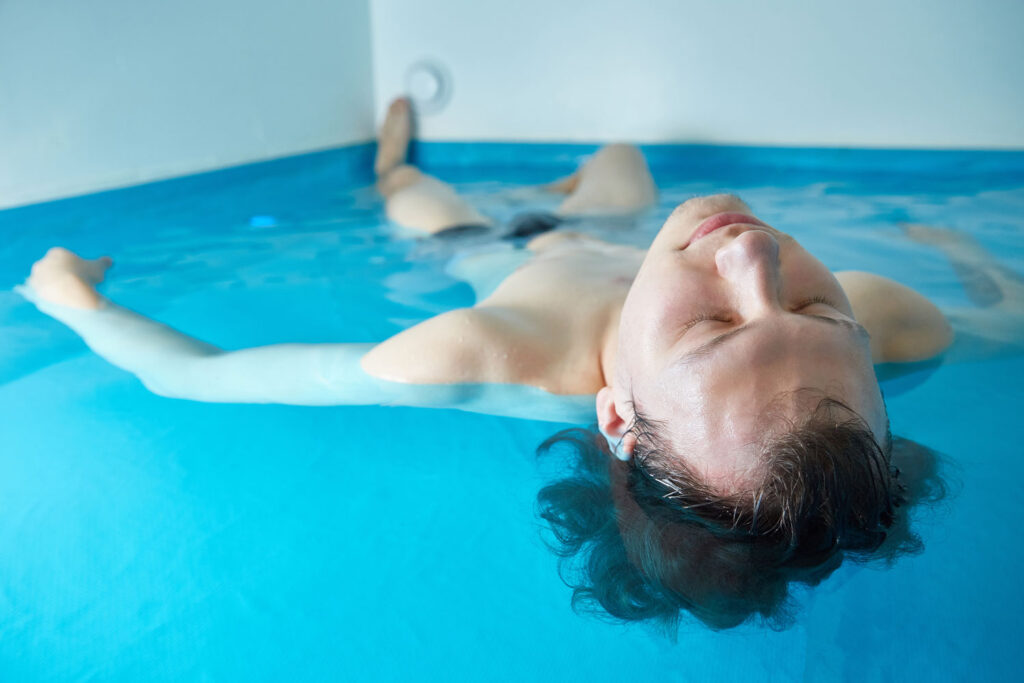In today’s fast-paced world, stress has become a common companion in our daily lives. Whether it’s the pressure of meeting deadlines, juggling personal responsibilities, or simply dealing with the unexpected, stress can feel overwhelming. But what exactly is stress, and how can we manage it in a way that promotes holistic wellness?
Fortunately, there are various methods to manage stress and promote relaxation. Common practices include yoga, meditation, deep breathing exercises, and progressive muscle relaxation. However, one increasingly popular method that offers profound mental and physical benefits is floatation therapy.
Floatation therapy’s primary benefit lies in the concept of sensory deprivation, where external stimuli such as light, sound, and touch are minimized or completely removed. This allows the brain to rest, focusing inward rather than processing external distractions. The result is a deep state of relaxation that can significantly reduce stress, anxiety, and symptoms of depression.
By eliminating external stimuli, floatation therapy creates a pathway for the brain to enter a state of complete rest. This not only helps reduce stress but also offers several additional benefits, including:
One of the most remarkable aspects of floatation therapy is the sensation of weightlessness. The Epsom salts in the water allow the body to float effortlessly, creating a zero-gravity environment that promotes deep relaxation. This weightlessness helps reduce muscle tension, lower blood pressure, and improve circulation. It also triggers the parasympathetic nervous system, responsible for the “rest and digest” response, which counteracts the body’s stress response and promotes healing.
Floatation therapy is suitable for almost everyone. Whether you’re dealing with stress-related conditions like insomnia, anxiety, high blood pressure, or chronic pain, or simply seeking a way to relax and unwind, floatation therapy offers a wide range of benefits. Athletes, in particular, can benefit from the therapy’s ability to reduce muscle soreness and accelerate recovery after intense training.
At KumeFloat Spa, we believe that everyone deserves to experience total body wellness. Our flotation therapy sessions provide a unique and holistic approach to recovery and relaxation. Whether you’re an athlete or simply looking for a peaceful escape, a 60-minute float session at KumeFloat Spa can help you rejuvenate and feel your best. To learn more about the benefits of float therapy or to book your session, visit KumeFloat Spa.

At its core, stress is the body’s natural response to any demand placed upon it. These demands can be physical, such as heavy lifting or running a marathon, or mental, like taking a final exam or giving a speech. When we perceive a threat, our bodies activate the “fight-or-flight” response, releasing stress hormones that prepare us to react quickly and effectively. This response is vital in dealing with real dangers but can also be triggered by everyday worries and concerns.
While this response can be helpful in short bursts, chronic stress can have severe consequences. Over time, it can lead to physical health problems such as high blood pressure, heart disease, and anxiety disorders. Recognizing the need for stress management is crucial for maintaining overall well-being.
Floatation therapy, also known as sensory deprivation, is a holistic wellness practice that has been gaining traction for its ability to reduce stress and promote relaxation. The practice involves floating in a pod filled with about 180 gallons of water mixed with over 1,000 pounds of Epsom salts, creating an environment so buoyant that the body floats effortlessly. This environment, denser than the Dead Sea, allows the body to experience a state of near-zero gravity, which relieves pressure on muscles and joints. The concept of floatation therapy dates back to the 1950s when neuroscientist John C. Lilly began researching the effects of sensory deprivation on the brain. He constructed the first float tank in 1972, and since then, the practice has spread worldwide, helping millions of people find relief from stress and improve their overall well-being.

Stress is an inevitable part of life, but it doesn’t have to control you. Floatation therapy offers a holistic approach to managing stress by allowing the mind and body to relax deeply and rejuvenate. Whether you’re looking to improve your mental clarity, relieve chronic pain, or simply escape the pressures of daily life, floatation therapy can provide a sanctuary of peace and healing.
Book an Appointment with Us At Kumefloat!
To schedule your first appointment, call us at +1 (510) 607-8930 or book online at KumeFloat, and we’ll be happy to walk you through your session, so you feel safe and comfortable!
Copyright@2025 KumeFloat. | All rights Reserved
Website Designed by SmartBoy Marketing